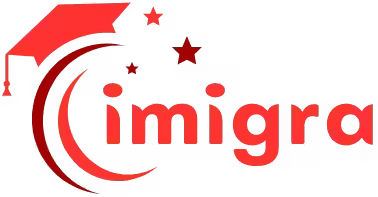Study Communication Abroad
Introduction
In a world driven by media and technology, Communication is a dynamic and essential field that shapes how information is shared globally. Studying Communication abroad equips students with advanced skills in public relations, digital media, and interpersonal communication, preparing them for impactful careers in diverse industries.
Top 3 Specializations in Communication
Mass Communication
- Over 50% of Communication graduates work in mass media industries like broadcasting and journalism.
- Focuses on delivering information to large audiences through television, radio, and digital platforms.
- Average Course Time: 3–4 years (undergraduate), 1–2 years (postgraduate).
- Further Specializations: Media Production, Journalism, Digital Broadcasting.
Public Relations
- The global PR market is expected to grow by 10% annually, with increasing demand for skilled professionals.
- Involves managing brand reputation, crisis communication, and building relationships with stakeholders.
- Average Course Time: 3–4 years (undergraduate), 1–2 years (postgraduate).
- Further Specializations:
Corporate Communication, Crisis Management, Event Planning.
Intercultural Communication
- With globalization, intercultural communication is one of the fastest-growing fields in Communication studies.
- Focuses on understanding and bridging communication gaps between different cultures.
- Average Course Time: 3–4 years (undergraduate), 1–2 years (postgraduate).
- Further Specializations:
Conflict Resolution, Cross-Cultural, Advertising
Multilingual Communication.
How Studying Communication Abroad Differs from India
Curriculum
India: Focuses on traditional media and regional communication styles.
Abroad: Covers emerging fields like digital media, intercultural communication, and PR strategies.
Practicals
India: Limited access to advanced tools and technology.
Abroad: Hands-on training with state-of-the-art equipment and collaborations with international media houses.
Exposure
India: Fewer internships with global companies.
Abroad: Opportunities to intern with top media agencies, PR firms, and multinational organizations.
Diversities
India: Focuses on local and national communication styles.
Abroad: Exposure to global communication practices and multicultural environments.
Top Destinations to Study Communication
The following destinations are ideal for studying Communication due to their world-class institutions and industry exposure:
- USA: Top universities like USC Annenberg and NYU, with strong ties to the media and PR industries.
- UK: Renowned programs at the London School of Economics (LSE) and University of Leeds, focusing on global communication trends.
- Australia: Practical-focused programs at institutions like Monash University and the University of Melbourne.
- Canada: Affordable tuition and high-quality education at universities like Ryerson University and UBC.
- Germany: Affordable or tuition-free programs specializing in media and communication studies.
Your Guide to Studying Communication Abroad
Navigate the path to studying Communication abroad with ease. Discover eligibility criteria, step-by-step application processes, and explore scholarships and financial aid opportunities. Your journey to a prestigious Communication education starts here.
Options, Requirements & Process Overview
Scholarships and Financial Aid
- Fulbright Program (USA): Fully funds international students.
- Chevening Scholarship (UK): Covers tuition and living costs.
- DAAD Scholarships (Germany): Covers tuition and living expenses for tech-related programs.
- Australia Awards Scholarship: Fully funds tuition and living expenses.
Eligibility
Requirements
- Academic Prerequisites: Strong grades in previous education (undergraduate) or a relevant bachelor’s degree (postgraduate).
- Language Proficiency: IELTS (6.5+) or TOEFL scores as required by universities.
- Documents: SOP, LORs, and internships or certifications in communication-related fields (if applicable).
General Application Process
- Shortlist universities and check their eligibility criteria.
- Prepare necessary documents: Transcripts, Statement of Purpose (SOP), and Letters of Recommendation (LORs).
- Take required entrance exams like NEET, MCAT, or IELTS.
- Apply via Imigra.
Course Duration
FAQs
Is a portfolio required for Communication programs abroad?
Some programs may require a portfolio showcasing writing, media projects, or related work. Reach out to us for specific university requirements.
Can I work in global media organizations after studying Communication abroad?
Yes, many graduates secure roles with top agencies like Edelman, Ogilvy, CNN, and BBC.
What career opportunities are available after studying Intercultural Communication?
Graduates can work in diplomacy, multinational organizations, global advertising, or as cultural consultants.
